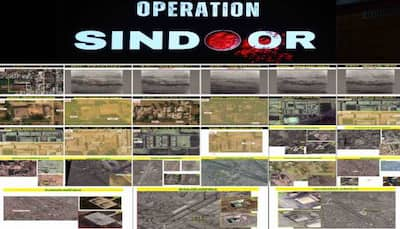New Delhi: Something changed in the war rooms of the world this week, and it was not in Islamabad. As India’s tri-service ‘Operation Sindoor’ unfolded with swift precision, targeting critical Pakistani airbases and drone depots, the ripple effects were not confined to the subcontinent. From Washington’s Pentagon to Beijing’s Zhongnanhai and even Ankara’s drone corridors, the silence was telling. Not condemnation. Not congratulations. Just the unmistakable unease of miscalculation.
According to geopolitical analyst and author Navroop Singh, India’s audacious move did not only expose the vulnerability of Pakistan’s defense infrastructure, it fractured a long-standing strategic assumption that India, however provoked, would always pause at the edge.
“Apart from hitting targets, Operation Sindoor shattered a global script that had grown too comfortable with India’s caution. The global order is built on predictable actors. India just became unpredictable, and that terrifies power centers, ” Singh said.
Author of ‘The Great Reset’, Singh warned that this was not merely a military moment, it was a diplomatic earthquake.
“The strike on Pakistan’s key air defenses was not just tactical. It declared, publicly and deliberately, that India no longer considers nuclear rhetoric a deterrent. That is psychological dominance,” he said.
Even more disturbing for global players is the backdrop – the rise of a new drone alliance among Pakistan, Turkey and China.
Pakistan’s growing arsenal of armed drones is no longer a symbol of indigenous innovation, but the result of a deepening trilateral axis involving Turkey, China, and covert Western indulgence.
Among the most dangerous assets to emerge from this nexus is the Yiha III a…
— Navroop Singh (@TheNavroopSingh)
Singh described Pakistan’s armed drone fleet as “outsourced aggression”, citing the Yiha III – a Turkish-origin kamikaze UAV now flying under Pakistani colours – as a major concern.
“Yiha III is the product of wars in Libya, Syria and Nagorno-Karabakh. It is not about mass destruction. It is about radar fatigue, false alarms, economic bleed. It is hybrid warfare on autopilot,” he said.
India’s retaliatory response made no attempt at ambiguity. In hours, radar stations were neutralised, drone hubs flattened and strategic depth diminished. And it was not hidden. It was broadcast – visibly and unapologetically.
“This was not war between two countries. It was a declaration of strategic self-determination. India demonstrated it would act on its own timeline and without green signals from Washington or global consensus,” Singh said.
Analysts suggest that the declaration sent a chill through capitals that had grown used to managing India’s rise within their preferred frameworks.
The fallout has scrambled what Singh calls the “G2 illusion” – the idea that the United States and China can jointly script global stability.
“Neither Beijing nor Washington foresaw this. They assumed India would continue to play the regional status quo actor. Instead, it made a global play. Now there is a panic. Quiet, strategic, but unmistakable,” he said.
That panic is playing out in subtle forms – calls for restraint, veiled economic warnings and renewed attention to Pakistan as a counterbalance. Singh warns of “a resurgence in soft containment strategies” aimed at slowing India’s momentum.
In his national address following the strike, Prime Minister Narendra Modi made India’s posture abundantly clear: “There is no space for talks while terror lives. There is no trade with those who host terror. And there will be no peace unless Pakistan acts.”
It was not a plea for peace. It was a doctrine – clear, hard and devoid of ambiguity.
“The era of nuclear blackmail is over. The terrorists they have fed will consume them. We will not distinguish between the hands that hold the gun and those who load it,” Modi said.
India’s operation may have lasted minutes. But the geopolitical recalibration it has forced will unfold over months. As Western powers and China struggle to readjust their calculus, one truth has become inescapable – India is not only a rising power, it is a sovereign force, which is capable, confident and no longer content to be managed.
Stay informed on all the , real-time updates, and follow all the important headlines in and on Zee News.








